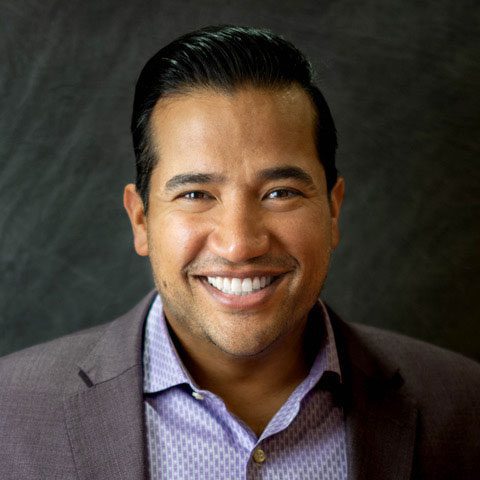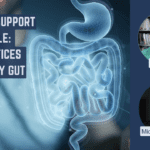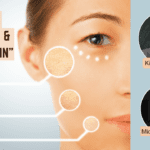
Play Video
Science Review: Megasporebiotic Demonstrates Liver-Protective Properties

SHARE THIS EPISODE
Recent Videos
Webinar Transcript
Kiran Krishnan:
So one of the things that we know very well when you study leaky gut is that the liver takes the brunt of the damage from leaky gut because all of those toxins flow past the gut and 85, 90% of those toxins will enter into the portal circulation, right? So meaning it’s going to hit the liver first. So the liver is taking the massive hits from leaky gut all the time. And so we wanted to see, because we know the spores impact leaky gut in such a positive way. Do the spores also have the means of protecting the liver.
So this is the acetaminophen induce acute liver injury, where you basically take animals, you give them doses of acetaminophen over a couple week period, that acetaminophen over time, which is an well known NSET pain killer that acetaminophen over time is going to damage the liver. And then we-
Michael Roesslein:
Yeah, Aspirin, correct.
Kiran Krishnan:
Aspirin. Exactly. Yes. And that’s… What we did is a three arm study where one was a control, so the animals didn’t get anything. The second one was a prescription silymarin, which is a milk thistle out of… I think, Germany and Europe, this is a prescription grade product. And then number three was a spores. We wanted to see, can it protect liver as well as silymarin or at all? And sure enough, what we saw was that the spores absolutely protected the liver even under the condition of liver toxicity induced by overdosing of acetaminophen. And then when we did the actual liver biopsies and pathology, we found that the liver tissues actually was significantly improved and helped in the spore group.
So the probiotics spores have a way of protecting the liver through that portal circulation access. I think a lot of it is driven through short… The formation of short chain, fatty acids, like butyrate, acetate and propionate, acetate and propionate in particular make their way to the liver and are very anti-inflammatory and do support the liver a lot. I just did a whole Instagram live with Dr. Asia Muhammad, where we talked for about an hour on the unsung hero that is the liver, right? The liver takes the brunt of a lot of GI issues and most people don’t look at liver as the liver, as a potential source of complications for their gut function because what’s very clear is that basic liver function tests that AST, ALT they don’t necessarily indicate fatty or dysfunctional liver.
You could have a fatty or dysfunctional liver and still have normal AST, ALT. So the encouragement has been, and that was what we concluded in our talk was that everybody, if you have a GI issue, you should go and get a liver scan. There’s things called a fibro scan. You can just do a basic ultrasound at your doctor’s office to look at fatty liver and fatty liver-
Michael Roesslein:
I was one of those people, by the way. I had extremely elevated AST and ALT numbers in my 20s-
Kiran Krishnan:
Yeah.
Michael Roesslein:
To the point where it was thought I might have hepatitis or I could have some… Something really bad going on with my liver. So I made it a concerted effort to deal with that and fix that. And about six years later, my AST and ALT numbers were down, which these are markers in the blood to the 20s or whatever, like is a normal number. And the doctor I was working with at the time, who I needed to write a script to do a phlebotomy for my high iron wouldn’t do it unless I did an ultrasound on my liver. And I said, “No, no, no, my numbers are fine.” And they’re like, “You’re not getting the script for the phlebotomy,” which phlebotomy is a common way to treat hemochromatosis, which I have.
And I’m like, “Fine, I’ll go do your ultrasound.” And then they did the ultrasound and I still had what they considered mild to moderate fatty liver and that wasn’t showing up with the blood tests and then more liver work, I did. Three years later, I went back, got another scan, liver looked fine, but my liver was considered fatty liver even though my blood markers were-
Kiran Krishnan:
Were normal.
Michael Roesslein:
Were kosher. So yeah, that’s a thing.
Kiran Krishnan:
It’s so important. And as the liver becomes fattier and more dysfunctional, it messes up the gut even more and of course it becomes toxic to the rest of the body as well.

Kiran Krishnan
About our Guest
Kiran Krishnan is a Research Microbiologist and has been involved in the dietary supplement and nutrition market for the past 17 years. He comes from a strict research background having spent several years with hands-on R&D in the fields of molecular medicine and microbiology at the University of Iowa. He left University research to take a position as the U.S. Business Development and Product Development lead for Amano Enzyme, USA. Amano is one of the world’s largest suppliers of therapeutic enzymes used in the dietary supplement and pharmaceutical industries in North America. Kiran also established a Clinical Research Organization where he designed and conducted dozens of human clinical trials in human nutrition.
Kiran is also a co-founder and partner in Nu Science Trading, LLC.; a nutritional technology development, research and marketing company in the U.S. Dietary Supplement and Medical Food markets. Most recently, Kiran is acting as the Chief Scientific Officer at Physician’s Exclusive, LLC. and Microbiome Labs. He has developed over 50 private label nutritional products for small to large brands in the global market. He is a frequent lecturer on the Human Microbiome at Medical and Nutrition Conferences. He conducts the popular monthly Microbiome Series Webinars through the Rebel Health Tribe Group practitioner training program, is an expert guest on National Radio and Satellite radio and has been a guest speaker on several Health Summits as a microbiome expert. He is currently involved in 9 novel human clinical trials on probiotics and the human microbiome.
Kiran is also on the Scientific Advisory Board for 5 other companies in the industry. Kiran offers his extensive knowledge and practical application of the latest science on the human microbiome as it relates to health and wellness.






